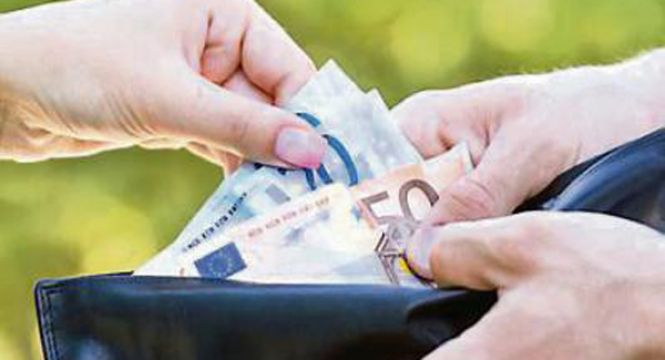But what does Budget 2021 mean for the average worker/consumer?
Self-employed
Self-employed people will get a boost from increased tax credits.
The earned income tax credit for self-employed people will rise by €150, meaning they can receive an extra €750 in income before paying tax.
This change will also apply retrospectively for 2020.
Minimum wage
The weekly threshold for the higher rate of employers' PRSI will rise from €394 to €398. This will mean employers will have no incentive to reduce hours for a full-time minimum wage worker.
Meanwhile, families with caring duties for loved ones will be supported by an increase in the dependant relative tax credit from €70 to €245.
Remote working
People working from home will be able to claim tax deductions on utilities such as light, heating and possibly broadband.
USC
The ceiling of second USC band will rise from €20,484 to €20,687, providing a small tax boost for people in that wage bracket.
Hike in petrol and diesel prices
The Government has announced a carbon tax increase of €7.50 per tonne of CO2. This will bring carbon tax from €26 to €33.50 per tonne of CO2.
The knock-on result will be an increase of around 2.5 cent per litre of petrol and diesel, coming into effect from midnight tonight.
The changes to carbon tax will add €1.51 to a 60-litre fill of diesel and €1.30 to a 60-litre fill of petrol.
Motor tax
On motor tax on new cars, Minister for Finance Paschal Donohoe said the number of Vehicle Registration Tax (VRT) bands will rise from 11 at present to 20, applying to all new car sales from January 1st. According to the Society of the Irish Motor Industry (SIMI), the changes will mean a €1,000 increase in the price of the average new car.
Whereas current VRT rates range from 14 per cent to 36 per cent, the new VRT table has a range from 7 per cent for cars with carbon emissions (CO2) up to 50g/km to 37 per cent on vehicles with emissions over 191g/km.
The Minister for Finance has also adjusted the NOx surcharge bands, a tax that applies to all new cars and used imports.
Homebuyers
The help-to-buy scheme for first-time buyers has been extended until the end of 2021.
The scheme allows first-time buyers to claim a tax rebate worth 10 per cent of the value of a home, to a maximum of €30,000.
€5.2 billion will be spent on housing in 2021, an increase of €773 million.
An affordability package for affordable housing and cost rental schemes worth €110 million will be introduced next year.
Meanwhile, a reduced stamp duty rate of 1 per cent on transfers of agricultural land between family members will be extended for a further three years.
Cigarettes and alcohol
Cigarettes will go up by 50 cent, bringing the average cost of a packet to €14, while the price of alcohol will be unchanged.







